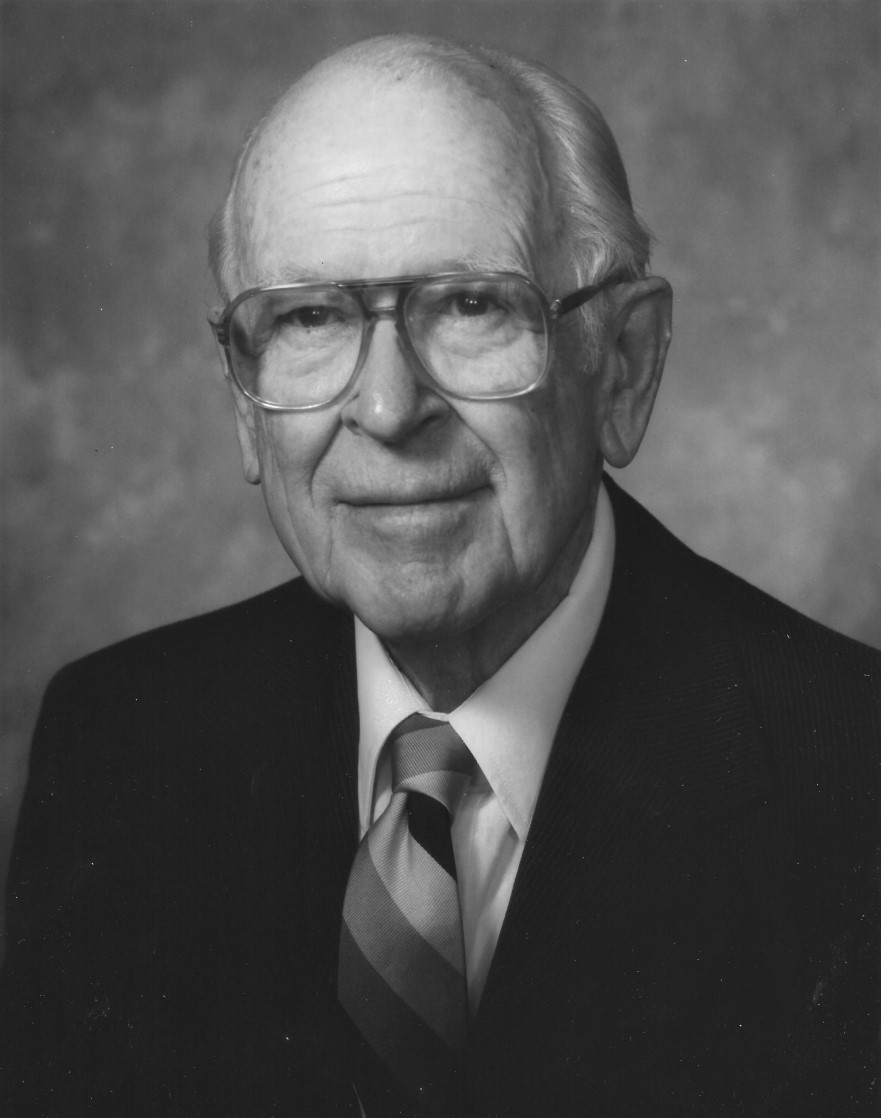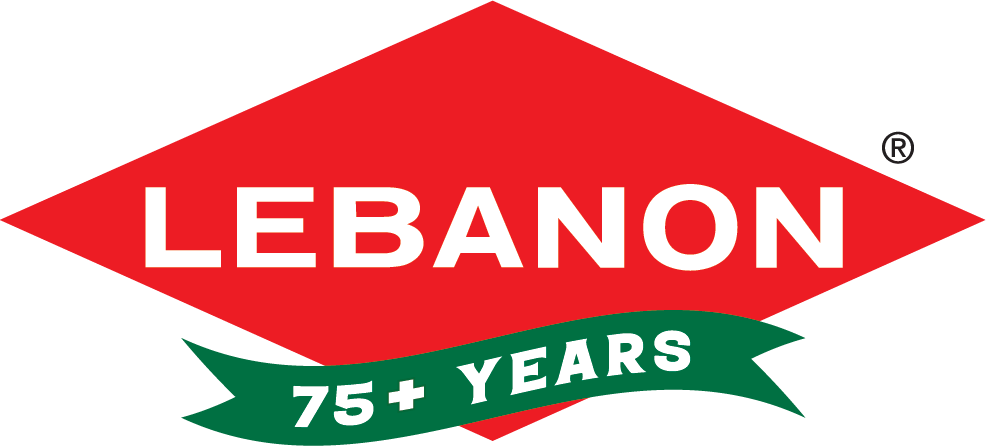The Founder:

Vernon Bishop’s lifelong dream of owning his own firm became reality in 1947 when he accepted the offer of a 50% share from the plant then known as Central Chemical Corporation of Lebanon. On May 13, 1947, the young chemical engineer became half owner and President of the branch operation. In 1953 because of Vernon’s venturesome nature Central Chemical of Hagerstown offered to sell the remaining interest in the plant to him. Bishop again accepted the offer, became sole owner of the company, and changed the name to Lebanon Chemical Corporation. The late Vernon Bishop’s legacy continues today throughout the Lebanon community as his generosity continues to touch the lives of so many in various ways.
The Company:

It all began in the little town of Lebanon, Pennsylvania. Central Chemical Corporation of Hagerstown, Maryland, purchased an old, dilapidated horseshoe factory on the outskirts of town. Once the home of the Lebanon Drop Forge Company, they quickly renovated and equipped it for making dry mixed fertilizer. At this time the company had ten employees, two salesmen and sales of $500,000.

Today, Lebanon Seaboard is a world class, single-source producer of lawn and garden supplies, wild bird food, and professional turf and horticultural products. It now operates 6 production facilities in 6 states and employs over 250 people. Its professional division leads the field in terms of product diversity and innovation, providing turf professionals with products that deliver optimal results. Its consumer division is one of the nations premium suppliers of consumer products, recognized for its cutting-edge technology, differentiated packaging and niche marketing. Lebanon Seaboard Corporation has prospered over half a century in an industry constantly challenged by change, financial stress, and strong competition. It continues to remain resilient and dedicated to the industries which it proudly serves.
Key Milestones:
- On May 13, 1947, Vernon Bishop, a young chemical engineer, becomes half owner and president of Central Chemical Corporation of Lebanon. Consisting of 3 buildings, the largest being the plant itself, used one dry fertilizer blending line to make product under the Farm-Rite label exclusively for farmers in Central PA.
- Soon the company expanded its sales, selling bagged fertilizer to farmers on Long Island and producing Sears' 5-10-5 private label fertilizer. This was Lebanon's first venture into the lawn and garden market.
- In 1951, the company embarked on an ambitious undertaking to produce pesticides for the United Nation's campaign to eradicate malaria. Its products were shipped worldwide in support of this program for the next twenty years. Lebanon was one of the first manufacturers to put weed killer in fertilizer.
- Shortly thereafter, the company made another major advance as it learned the process for making "ureaform" controlled release fertilizers from Allied Chemical. This technology employed a process perfected by TVA that was to become the core process for making homogenous lawn and garden fertilizers.
- In 1953 Vernon Bishop took sole ownership of the company and changed the name to Lebanon Chemical Corporation. Additionally, the Farm-Rite name was replaced in the red diamond logo with Lebanon.
- On June 23, 1957, a bolt of lightning struck its main business office and insecticide warehouse. The entire structure was destroyed by flames. Undaunted, Lebanon Chemical saw it as an opportunity to rebuild and better its facility.
- In 1965 Dayton Fertilizer and Trenton Bone Company were purchased to serve the New York and Long Island markets. These were the first of 30 fertilizer related business acquisitions.
- By 1967, demand for the nonfarm fertilizer was crowding out production of farm fertilizer at Lebanon, so a plant in Baltimore was purchased from FMC and farm production was moved there.
- In 1974, Lebanon purchased Eli Lilly's (Elanco) lawn and garden business, complete with customers, trademarks and brand names. The Greenfield retail products were rebranded to Greenview fertilizer. The acquisition also included a little known brand of garden weed preventer called Preen.
- In 1985, Lebanon ventured into the liquid fertilizer market by buying Tidewater Agricorp, who had a significant market presence in southern Virginia and North Carolina. More liquid fertilizer plants were acquired from Royster, who sold its Delmarva business to Lebanon two years later.
- The further purchase of W.B. Tilghman's operation on Delmarva gave Lebanon a dominant market presence in this strategic farming region and firmly entrenched it in the liquid fertilizer business.
- in 1987, Vernon Bishop realized that the management team he had assembled and which had been responsible for the company's tremendous growth, was approaching retirement age. So he enticed his daughter, Katherine Bishop, a physicist with a MBA degree then working in Australia, to join the corporation.
- By 1990, the Greenview brand had branched out into a Greenview branded grass seed supplied by the Seaboard Seed Company. In 1993 the company was renamed the Lebanon Seaboard Corporation when it acquired the seed supplier and its sister company (Stanford Seed Company).
- The grass seed company acquisitions of 1993 also came with wild bird food. Lyric, the premium wild bird food brand, is flourishing today and is a vital part of our growth platform.
- In 1996, as the company was executing a new distribution center strategy, freak snowstorms brought down two large distribution centers. As with the fire of 1957, Lebanon built back bigger and better.
- In 1998, Lebanon made the difficult, yet strategic decision to turn away from its agricultural roots and sell its farm division. It was then able to focus its resources entirely on growth opportunities in the expanding professional turf and consumer lawn and garden markets.
- 1998 also saw the purchase of Penn Turf Products (PennMulch seeding mulch) and the professional division of Purcell Industries. Manufacturing facilities were upgraded to produce exclusive nitrogen sources of IBDU and later Meth-Ex, methylene urea technology.
- In 2000, Lebanon launched a revolutionary methylene urea with sulfate of ammonia product named Mesa®, followed shortly by Expo®, which added sulfate of potash to the methylene urea base. the Lebanon grass seed breeding program was in full swing producing a number of the world's best seed varieties.
- in 2008, Lebanon acquired the Emerald Isle line of products from Milliken & Co. Emerald Isle™ premium foliar fertilizers and other granular nutrition products were added to the Professional Products meeting golf course superintendent's turf grass management needs through advanced foliar nutrition.
- 2008 also saw the acquisition of the ROOTs bionutrient brand from Novozymes. The ROOTS brand is an all-in-one nutrient delivery system that feeds the plant while enhancing the biological life of the soil and plant ecosystem.
- Lebanon's commitment to the emerging field of biological plant nutrition was reinforced when in 2011 a division of Plant Health Care (PHC) was acquired, increasing the products serving golf course superintendents and landscape professionals.
- The Preen brand grew dramatically from its small beginnings to become the largest brand for Lebanon Seaboard. In 2018 it launched Preen Extended Control products which doubled the garden weed prevention efficacy to 6 months.
- Lebanon broadened their portfolio of wild bird food brands and products in the fall of 2022 when they acquired Pine Tree Farms out of Interlaken, New York. The Pine Tree Farms collection of brands compete in the seed cakes and suet's segments which are an excellent compliment to the existing Lyric wild bird food mixes.